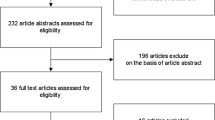Abstract
While majority of previous research focus on reviewing mobile health (mHealth) apps targeting specific health domain, this paper provides a comparative systematic review of mHealth apps across multiple health domains with the aim of deconstructing the persuasive strategies employed and their implementation. Specifically, we targeted four health domains (i.e., physical activity and fitness, diet, emotional and mental health, and health assessment and healthcare). We retrieved a total of 639 apps from Google Play out of which 80 popular apps were extracted (20 apps in each category). Three expert reviewers coded the apps using 32 persuasive strategies (PSs) based on Persuasive System Design (PSD) Model and Cialdini’s Principles of Persuasion. Overall, out of the 80 mHealth apps reviewed, personalization is the most commonly employed PS (n = 77), followed by surface credibility (n = 69), trustworthiness (n = 66) and self-monitoring (n = 64). How the apps are implemented varies depending on the domain. Based on our findings, we offer suggestions for designing mHealth apps to improve their persuasiveness.
Access this chapter
Tax calculation will be finalised at checkout
Purchases are for personal use only
Similar content being viewed by others
References
Gu, T.: Insights into the World’s 3.2 Billion Smartphone Users, the Devices They Use & the Mobile Games They Play (2019). https://newzoo.com/insights/articles/newzoos-global-mobile-market-report-insights-into-the-worlds-3-2-billion-smartphone-users-the-devices-they-use-the-mobile-games-they-play/
Martínez-Pérez, B., et al.: Mobile health applications for the most prevalent conditions by the world health organization: review and analysis. J. Med. Internet Res. 15, e120 (2013)
Dute, D.J., et al.: Using mobile apps to promote a healthy lifestyle among adolescents and students. JMIR mHealth uHealth. 4, e39 (2016)
Dallinga, J.M., et al.: App use, physical activity and healthy lifestyle: a cross sectional study. BMC Public Health 15, 1–9 (2015)
Rivera, J., et al.: Mobile apps for weight management. JMIR mHealth 4, e87 (2016)
Chang, T.-R., Kaasinen, E., Kaipainen, K.: Persuasive design in mobile applications for mental well-being: multidisciplinary expert review. In: Godara, B., Nikita, K.S. (eds.) MobiHealth 2012. LNICST, vol. 61, pp. 154–162. Springer, Heidelberg (2013). https://doi.org/10.1007/978-3-642-37893-5_18
Harri, O., Marja, H.: Persuasive systems design: key issues, process model, and system features. Commun. Assoc. Inf. Syst. 24, 96 (2009)
Cialdini, R.B.: Harnessing the science of persuasion. Harvard Bus. Rev. 79(9), 72–81 (2001)
Nurcan, A., Duygu, F.: Use of Persuasion Strategies in Mobile Health Applications. Springer, Cham (2018). https://doi.org/10.1007/978-3-319-73135-3_2
Pinzon, O.E., Iyengar, M.S.: Persuasive technology and mobile health: a systematic review. In: Persuasive Technology, pp. 45–48, Linköping, Sweden (2012)
Meedya, S., Sheikh, M.K., Win, K.T., Halcomb, E.: Evaluation of breastfeeding mobile health applications based on the persuasive system design model. In: Oinas-Kukkonen, H., Win, K.T., Karapanos, E., Karppinen, P., Kyza, E. (eds.) PERSUASIVE 2019. LNCS, vol. 11433, pp. 189–201. Springer, Cham (2019). https://doi.org/10.1007/978-3-030-17287-9_16
Geuens, J., et al.: A review of persuasive principles in mobile apps for chronic arthritis patients: opportunities for improvement. JMIR mHealth 4, e118 (2016)
Thach, K.S., Phan, T.P.N.: Persuasive design principles in mental health apps. In: IEEE-RIVF International Conference on Computer and Communication Technology, pp. 1–6 (2019)
Tiffany, B., et al.: Mobile apps for oral health promotion. JMIR 6, e11432 (2018)
Langrial, S., et al.: Native mobile applications for personal well-being: a persuasive systems design evaluation. In: PACIS 2012 Proceedings (2012)
Azar, K.M., et al.: Mobile applications for weight management. Am. J. Prev. Med. 45, 583–589 (2013)
Orji, R., Moffatt, K.: Persuasive technology for health and wellness: state-of-the-art and emerging trends. Health Inform. J. 24, 66–91 (2018)
Matthews, J., et al.: Persuasive technology in mobile applications promoting physical activity: a systematic review. J. Med. Syst. 40, 1–13 (2016)
Wang, Y., et al.: Persuasive technology in reducing prolonged sedentary behavior at work: a systematic review. Smart Heal. 7–8, 19–30 (2018)
Bartlett, Y.K., et al.: Using persuasive technology to increase physical activity in people with chronic obstructive pulmonary disease by encouraging regular walking. J. Med. Internet Res. 19, 124 (2017)
Consolvo, S., et al.: Goal-setting considerations for persuasive technologies that encourage physical activity. In: ACM International Conference Proceeding Series, p. 350 (2009)
Cham, S., Algashami, A., McAlaney, J., Stefanidis, A., Phalp, K., Ali, R.: Goal setting for persuasive information systems: five reference checklists. In: Oinas-Kukkonen, H., Win, K.T., Karapanos, E., Karppinen, P., Kyza, E. (eds.) PERSUASIVE 2019. LNCS, vol. 11433, pp. 237–253. Springer, Cham (2019). https://doi.org/10.1007/978-3-030-17287-9_20
Orji, R., et al.: Socially-driven persuasive health intervention design: competition, social comparison, and cooperation. Health Inform. J. 25, 1451–1484 (2018)
Orji, R.: Why are persuasive strategies effective? Exploring the strengths and weaknesses of socially-oriented persuasive strategies. In: de Vries, P.W., Oinas-Kukkonen, H., Siemons, L., Beerlage-de Jong, N., van Gemert-Pijnen, L. (eds.) PERSUASIVE 2017. LNCS, vol. 10171, pp. 253–266. Springer, Cham (2017). https://doi.org/10.1007/978-3-319-55134-0_20
Orji, R., et al.: Improving the efficacy of games for change using personalization models. ACM Trans. Comput. Interact. 24, 32 (2017)
Author information
Authors and Affiliations
Corresponding author
Editor information
Editors and Affiliations
Rights and permissions
Copyright information
© 2020 Springer Nature Switzerland AG
About this paper
Cite this paper
Oyebode, O., Ndulue, C., Alhasani, M., Orji, R. (2020). Persuasive Mobile Apps for Health and Wellness: A Comparative Systematic Review. In: Gram-Hansen, S., Jonasen, T., Midden, C. (eds) Persuasive Technology. Designing for Future Change. PERSUASIVE 2020. Lecture Notes in Computer Science(), vol 12064. Springer, Cham. https://doi.org/10.1007/978-3-030-45712-9_13
Download citation
DOI: https://doi.org/10.1007/978-3-030-45712-9_13
Published:
Publisher Name: Springer, Cham
Print ISBN: 978-3-030-45711-2
Online ISBN: 978-3-030-45712-9
eBook Packages: Computer ScienceComputer Science (R0)




